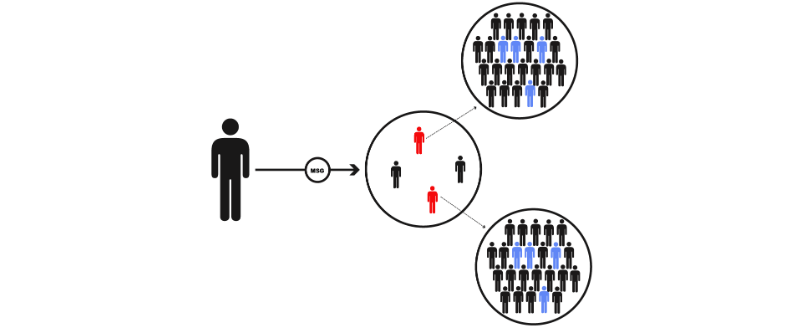This piece comes to us from Jeanette Russell, a long-time Epolitics.com reader who’s now Marketing Director at Attentive.ly.
Divisiveness doesn’t come about in politics just around election season — year round, there are topics that produce deeply divided opinions around the environment, immigration, health care, finance, women’s rights, education, and many other issues. Every day, hundreds of thousands of people are talking about these issues on social media, which for political campaigns and advocates is a social data and engagement goldmine. Not only can listening to these issues help give your organization tremendous insight into how your supporters feel, but it also affords the opportunity to engage your base while a hot topic is fresh on their mind.
Here’s a deeper dive into how advocates can use social data around trending topics for rapid response engagement marketing.
What’s Trending in Your CRM?
Social listening lets you know exactly which topics are trending with key segments of your audience. This provides advocates a deeper understanding of how their supporter really feel about critical issues by seeing how relevant key terms such as “TPP,” “immigration,” “fracking,” or other topics are trending in their database. Similar to running a daily poll, combining social data with your email file allows you to analyze the most important political topics with your supporters. What this does is offer a real-time look at what people are talking about on Twitter and Facebook, including specific hashtags and keywords. Social data allows campaigners to get the pulse on your people — every day.
Identify Influencers on Your List to Share Your Message
Influencers are message catalysts. They have audience of their own. Our new research shows that the top 5% of people in your CRM reach 470 times more people than your CRM alone. These top influencers carry tremendous social weight and can drive engagement with your campaigns. One way to identify your influencers is to find those with high Klout scores who are also discussing your key terms on social. Once identified, send your influencers an automated or personalized email with a compelling request to share a message from your office — if possible, remind them about your past votes and highlight why it’s important to share your message now.
Send Multi-Channel Replies to Activists Talking About Your Issue
Once you’ve identified people talking about a specific hot button issue of the moment, segment key groups in your CRM to refine your targeting. The idea is to use social data as a targeting tool so you can not only filter groups in your CRM, but segment with real-time social mentions. Once segmented, with tools like Attentive.ly, you can reply to these mentions with automated emails, DM’s, or respond to individual tweets or Facebook posts. Here’s an example of how the American Friends Service Committee responded to Ferguson with social data.
Social Data Is Not Social Media
Campaigns now have an entirely new and affordable engagement tactic that wasn’t around a few years ago. This is not the same as social media or the ability to search for unsegmented key terms on Hootsuite. We’re talking about “big data” that’s available and affordable to obtain. If you have an email file, or Twitter followers, then you have access to social data.
Thanks Jeanette! Contact her for more about Attentive.ly and how it can drive engagement for campaigns using social data. Also check out Attentive.ly’s March 26th webinar, “Everything You Need to Know About Starting Influencer Engagement”.


[…] an infrastructure of new leaders who can reach a far larger audience than you can on your own. The top 5% of people in your database reach 470x the number of people as your entire database […]